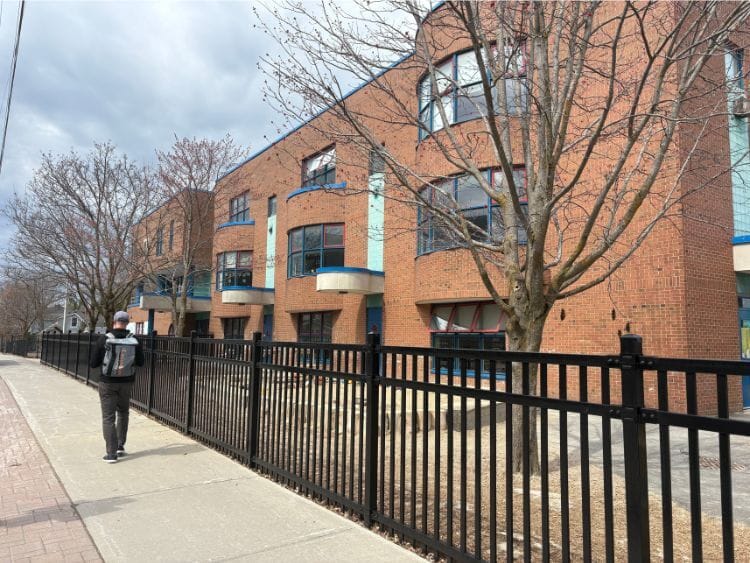Bracing for cuts: The Ottawa-Carleton District School Board has plans to move ahead with its controversial new elementary school proposal, which will do a lot of chopping.
While the cuts will be as drastic as initially planned, many parents say their children will still face negative impacts if the changes are implemented in their current form. One of the biggest is the removal of the OCDSB’s alternative education program.
How does it compare to a traditional school program? Unlike traditional school programs, alternative schools focus on individualized learning with flexible scheduling. Report cards only have comments, not grades, and sports teams are for everyone and not competitive.
“There’s no sticker charts or awards. There is no recognition of individual accomplishment. That’s a cultural thing. All the teachers and the principal are addressed by their first names. The idea is to remove the official hierarchy in schools and value each person’s contribution to the school community,” Amanda Case, co-chair of Churchill Alternative’s school council, told the Kitchissippi Times.
“As a result, kids aren’t trying to outperform each other or be the fastest. If a student finishes their work early in class, instead of being given a fun task, they are reassigned to help their struggling peers.”
Parents say the program has been a lifeline for their families.
In March, after it was announced alternative education was still being cut, Emily Addison, co-chair of the board’s Alternative Schools Advisory Committee, sent an email to impacted families asking for them to share their lived experiences. Over 50 parents wrote in. They expressed the positive mental health impacts noticed in their children, increased engagement in the school community, and better grades, reported the Ottawa Citizen.
But the board isn’t backing down: Trustees say alternative education needs to go because it costs too much money to transport the students out of their communities.
Barrhaven trustee Donna Blackburn received backlash when she called them “boutique schools.”
“When we spend a lot of money on a program like that, it's less likely that the kids in Barhaven are going to get what they need,” she previously told the Ottawa Lookout. ”When we overspend our transportation budget, that money comes out of the classroom. It breaks my heart when I have to talk to a parent and say, I'm really sorry your child can't attend school all day because we don't have the support in the schools for that if they have high needs.”
Are the savings really that big? Parents are arguing that it doesn’t cost more to run alternative schools because staffing, class sizes, and other resources are all the same as in a traditional school. Even on the transit front, parents say it won’t account for that much of a difference because the students would still need transportation to get to and from school. The board has also noted that the $1.2 million annually it was planning to save would be lower.
Other changes coming: There were plans to change the grade structures of many schools, but most have been spared after the board admitted there were “numerous concerns about siblings attending different schools.”
A total of 26 programs which cater to special needs students will be phased out, but those that were supposed to be removed have been saved. For those programs getting cut, current students will get to finish out their programs.
For French immersion, Kindergarten will continue to be offered half in English and half in French, but Middle French immersion is being removed altogether.
The Ottawa Citizen has compiled a comprehensive breakdown which can be viewed here.
Next steps and unanswered questions: There are some unanswered questions about whether students can be grandfathered so they won’t need to switch schools. Many trustees have supported the exemption, but who would be included and for how long is still uncertain.
Now that final recommendations have been made public, it will officially be presented to the board for discussion on May 6. A final decision is then planned for May 13.




